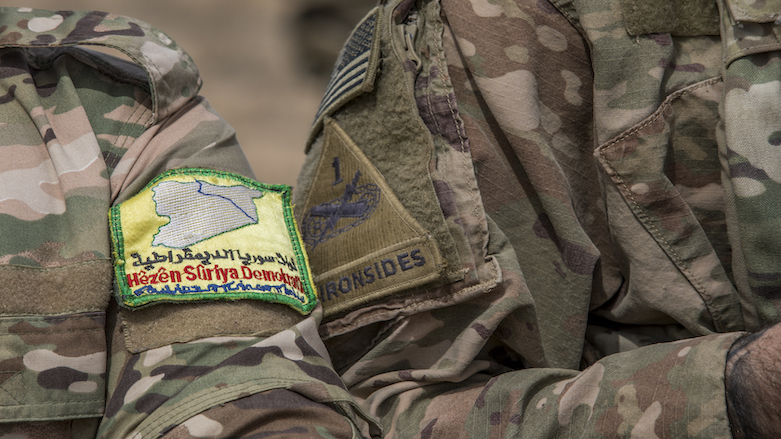US lawmakers introduce bipartisan bill to extend immigrant visas to Syrian Kurdish fighters

ERBIL (Kurdistan 24) – Lawmakers in the US House of Representatives have again introduced a bill to give special visas to Syrian Kurds who partnered with American forces in the fight against ISIS.
Rep. Jason Crow, a Democrat from Colorado, and Rep. Michael Waltz, a Florida Republican, reintroduced the Syrian Partner Protection Act on Monday, Law 360 first reported. The bill would extend the existing special immigrant visa program to some Syrian Kurds and their families.
The bill was first introduced in 2019.
“Syrian Kurds played a pivotal role in helping the US defeat the ISIS caliphate and have been an instrumental partner in the region,” Waltz said in a joint statement with Crow on Tuesday.
“Our Kurdish allies have put their lives on the line and risked retaliation to help advance US interests and fight our enemies,” he added. “They deserve our gratitude for their assistance. The US Congress should acknowledge those who have fought alongside us on the battlefield.”
The US special immigrant visa programs gives the Department of State authority to issue such visas for some Iraqis and Afghans whose lives were threatened because of their work as translators, interpreters, soldiers, or advisors for the US government or US forces.
Last week Crow and 15 other lawmakers urged President Joe Biden to expedite special immigrant visas and refugee admissions for Afghans who supported US operations in Afghanistan, after the administration said it would pull at American troops from the country this year.
The US-led coalition has continued to support the Kurdish-led Syrian Democratic Forces in northeast Syria despite the announcement of ISIS’s territorial defeat in March 2019.
The bill does not address the presence of non-Kurdish fighters within the SDF. Although the multi-ethnic SDF is led mostly by Kurdish commanders, the majority of its ranks are composed of Arab fighters from tribes from across northeast Syria. The SDF also includes fighters from other ethnic and religious minorities, including local Syriacs and Assyrians.
Editing by Joanne Stocker-Kelly
